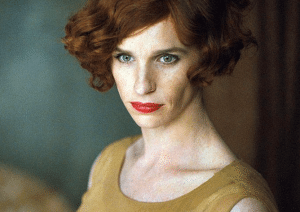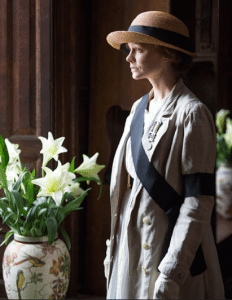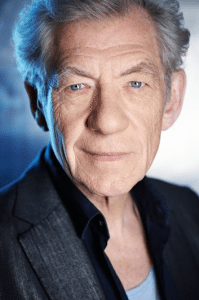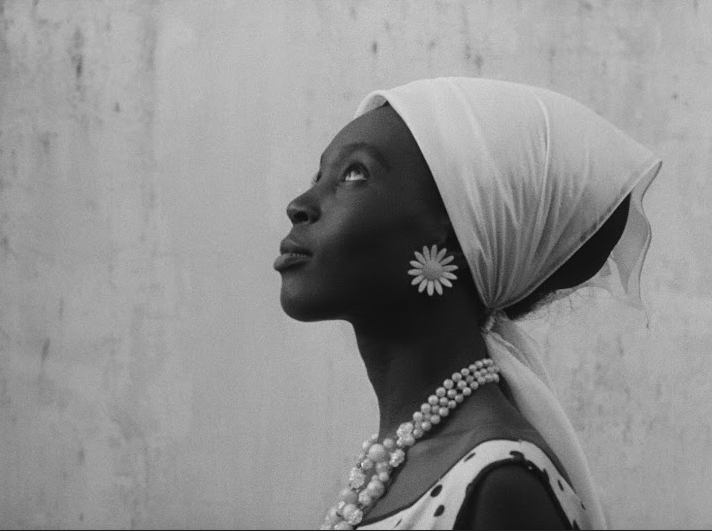by Mal Karman
Autumn and the Mill Valley Film Festival are upon us, and like Wagner’s Valkyries, the ladies are about to storm into town, take over the big screen and practically commandeer the 38th annual event with their own style of cinematic thunder and lightning. (OK, we got that one out of our system—now let’s take a look at what the El Niño of Marin events has brewing from October 8-18.)
There are films by women, for women and about women. No less than 40 percent of the features credit female directors. Three Spotlight evenings shine on auspicious actresses Sarah Silverman, Brie Larson and Carey Mulligan, who is already a headliner; there is fanfare for Catherine Hardwicke, best known for directing the teen vamp flick Twilight; five of nine panel discussions will be run exclusively by women or focus on women’s issues; there are two exhibitions—one honoring the legendary actress Ingrid Bergman, the other an exploration of how females are depicted in movies; two special premieres with female leads; and a closing night film about women fighting for the right to vote. Indeed so much feminine energy is on the scene that even this year’s Oscar-winning actor Eddie Redmayne plays a woman. In one of two Opening Night offerings, he takes on the title role in The Danish Girl (Oct. 8, 7pm and 7:15pm), the true story of an artist, who


underwent transgender surgery 85 years ago, and her enduring romance with another woman.
Silverman, who is openly candid about her lifelong struggle with depression, turns from stand-up comedy to portray a depressed wife and mom and one of the most psychologically dysfunctional creatures we never want to meet in I Smile Back (Oct. 9, 7pm).
Sacramento’s Larson, seen recently in Trainwreck and The Gambler, is generating Oscar buzz for her role in Room (Oct. 14, 7pm) as a young woman imprisoned with her 5-year-old by her kidnapper-rapist. Both actresses will chat with audiences following screenings of their films. Mulligan’s Spotlight (Oct. 17, 6pm) will feature clips of her numerous roles and an onstage conversation. The following evening, she’ll be featured in Suffragette, with Helena Bonham Carter and Meryl Streep. The closing night film screens at 5pm and 5:15pm.
Hardwicke’s tribute (Oct. 10, 7:30pm) includes an onstage conversation and screening of her latest, Miss You Already, a drama about lifelong girlfriends whose trajectories are catapulting in opposite directions.
The two femme-focused special premieres feature Jena Malone as a young wife in Victorian England haunted by the supernatural and, egad!, barred from making love to her husband; and Taryn Manning (an Orange is the New Black girl) as a college-bound co-ed who has to choose between enrolling at her out-of-town dream campus or taking care of her nightmare bipolar mom. Malone freaks out in Angelica (Oct. 10, 8pm; Oct. 11, 8pm) and Manning sweats it out in A Light Beneath Their Feet (Oct. 10, 8:15pm, Oct. 12, 11:45am, Oct. 14, 2:45pm).
Somewhat remarkably, the emergence of women at the helm of narrative features at this MVFF has soared to 33 percent (40 percent including documentaries and topping 44 percent of the shorts), figures that have never had much in common with Hollywood, where the mere seven percent of films assigned to female directors has not changed in 20 years.
“We created this program to recognize the role of women, not only stories directed by women, but stories driven by women’s perspective,” explains Executive Director Mark Fishkin, whose program director, two senior programmers, director of development, director of finance and director of communications are all female. Coincidence? “There has always been a large percentage of women filmmakers here and, now with the help of an NEA grant, it’s stepped up by intention and design.”
Program Director Zoe Elton says, “We started looking at the way stories are told and applied the Bechdel Test: ‘Are there two women in a film who talk to each other about something other than a man?’ And to that we added, ‘Are they characters who act rather than react?’”
* * *
In case someone hasn’t noticed, there are two women running for president and one Donald Trump, who denigrates them while cleverly hiding his hairpiece and his ignorance about world affairs in the process. He could begin a foreign policy education with Vanessa Hope’s All Eyes and Ears, an illuminating documentary on “the delicate, intersecting layers of history, ideology and politics at play” in U.S.-China relations. Through former Ambassador Jon Huntsman, his adopted Chinese teenage daughter Gracie Mei, blind rights activist Chen Guangcheng, and the director’s feminist perspective, a political puzzle is pieced together of how the two countries grapple over women’s issues, national security, economic growth and human rights.
“Part of the trick of foreign policy (in both the U.S. and China) is keeping people in the dark so they can’t speak up,” Hope says. “They’re unaware and uninformed. I wanted to dig into abuses of power in the relationship and investigate whether it was working to serve the people.”
The filmmaker, who divided her time between San Francisco and Los Angeles this year and whose short film, China in Three Words, played at MVFF in 2013, studied and worked in China and is fluent in the language. That did not stop authorities from stalking her like a spy and harassing her and camerawoman Magela Crosignani, depriving them of food and sleep, and blocking them from shooting, she says, particularly when they set out for Tibet.
Hope says she wants to prod more women to enter the field of foreign policy and quotes author-analyst Dr. Valerie Hudson as saying, “There cannot be peace between nations until there is peace between men and women.” Oh, sister! If that’s the case, please grab the Xanax—we’re about to have a panic attack.
* * *
The fest has again courted those films that not only tell it like it is but show it like it oughtta be, issue-oriented cinema that threatens to wake the dormant activist in each of us.
Oakland filmmaker Elizabeth Sher’s Penny (Oct. 10, 2pm and Oct. 16, 11:45am) is a smart, brash, left-wing, lesbian legal eagle and avid collector of art (by women only) whom, she describes as being “at the center of profound changes in society from the 1940s to the present.” Working in the public defender’s office during the height of the Vietnam War, Penny Cooper recalls her own story of planning to march in solidarity with protesters and was told by her boss to back off. “For exercising my civil rights?” Penny exclaimed. She quit and threw up her own shingle in Berkeley, just in time to represent defendants in the People’s Park demonstrations.
To be sure, she has also gone to court on behalf of some dubious clients: Hell’s Angels, a murderer who escaped life in prison, a defendant known as the crossbow killer. But she says, “You judge a society by how it treats its worst, and constitutional rights are meaningless unless they apply to the worst of society.” All right then, lawyers for mosquitoes!
On the same program, Berkeley filmmaker Marlene “Mo” Morris, a onetime attorney herself, creates an intimate portrait of another tough but compassionate female, African-American muralist Edythe Boone, in A New Color: The Art of Being Edythe Boone. Born into humble beginnings in Harlem and later raised in an Orthodox Jewish family, the 73-year-old Boone’s massive, iconic murals are to be discovered enhancing


buildings and streets of San Francisco, Berkeley and Oakland. When she is not climbing scaffolds with a paintbrush in hand, she teaches underserved youth and seniors, encouraging them to use art to grapple with feelings about violence and racism in the community.
“On our first day of production at West Oakland Middle School,” Morris says, “the students were reeling after a weekend shooting incident (that killed) a 13-year-old classmate in the crossfire. Edy’s wise and loving response that day revealed her enormous capacity for channeling anger and fear into creative and positive directions.”
Then, just after the last day of filming in July 2014, Edy’s nephew, Eric Garner, a Staten Island father of six, was killed with an illegal chokehold by a New York City cop. After the grand jury failed to indict the officers involved, Edy spoke at a public event in support of Black Lives Matter.
“It wasn’t until I’d known (this lady) for 10 years, when the City of Berkeley named an annual day in her honor,” Morris says, “that I learned just how deeply her art and activist social justice values had enriched the lives of Bay Area residents.”
Tiburon’s Robin Hauser Reynolds mounts a pretty strong case exposing gender discrimination in the tech world. What else could anyone think when Harvard President Larry Summers purportedly came out with a claim that women are underrepresented in the field because of an innate inferiority in their genes. Obviously no one informed him that computer system components communicate via motherboards, not fatherboards. “My daughter was studying computer science in college … and was one of only two women in a class of 35 and she felt alienated,” Reynolds recounts. “The White House issued a report that said by the year 2020 there would be 1 million unfilled jobs in computer science and related fields. I wanted to know why we were missing half the population.”
Code: Debugging the Gender Gap (Oct. 9, 6pm; Oct. 14, 3:30pm; Oct. 17, 2pm) “examines why more women don’t pursue computer science and explores how stereotypes, pipeline hurdles and sexism play roles.”
It exposits with some nifty animation to enhance an entertaining, polished, well-paced doc on a topic that, otherwise, might have put many tech guys into a coma. The only thing missing here are interviews with male engineers telling us what they think of women coders.
“We heard (their) crazy theories,” Reynolds says, “but none of them would go on camera.”
* * *
So where does this leave the men? Sleeping on the sofa, of course. Well, maybe not—there are some heavyweight gents coming to town with some wizardry of their own, none more obvious than British actor Ian McKellan. Recently seen in the title role of Mr. Holmes—but more iconically recalled as Gandalf in Lord of the Rings—McKellan was twice nominated for acting Oscars and has won 18 major acting awards. He’ll be on stage to receive a lifetime achievement award without his wizard’s hat, his staff or his sword and for an


interview enhanced by reminiscences following clips from a career spanning more than 50 years. McKellan will also be giving a special talk titled, “Women I’ve Filmed With,” during which he’ll share his favorite moments working with some of cinema’s most legendary actresses (Oct. 12, noon).
In the wake of Pope Francis’ rock stardom in America, and as further evidence that men can’t be ignored completely, Opening Night’s second feature, Spotlight (Oct. 8, 7pm and 7:15pm), has nothing to do with the aforementioned Spotlights or, for that matter, women. An ensemble cast featuring Michael Keaton and Mark Ruffalo throws some harsh light on the Catholic Archdiocese as the Boston Globe breaks the shocking news in 2001 of widespread child molestation by priests.
Academy Award-winning French director Marcel Ophuls is also booked for a tribute and on-stage interaction with the audience. His seminal documentary The Sorrow and the Pity (the film Woody Allen considers the greatest ever made), about the collaboration between the Vichy government and Nazi Germany during World War II, screens Oct. 16 at noon. At 260 minutes, it is the Mount Everest of movies, but nonetheless a mesmerizing experience once you get to the top—one that promises to remain in your brain for weeks, if not longer. Born in Germany, escaping to France following the rise of Nazism, then to the U.S. after the Nazis invaded France, the director’s own life could be a movie with a local twist: He was once a student at UC Berkeley. Ophuls’ tribute, on the boards for Oct. 15 at 7pm, includes a screening of Ain’t Misbehavin,’ a movie of, well, his own life.
Along with The Sorrow and the Pity come three more entries with roots in World War II: Cannes’ Grand Prix winner Laszlo Nemes’ Son of Saul, Iranian-born Swiss-German director Barbet Schroeder’s Amnesia and Marin filmmakers Eli Adler and Blair Gershkow’s Surviving Skokie.
Son of Saul, 38-year-old Hungarian director Nemes’ startling first feature, is the grim tale of a concentration camp prisoner forced to prepare corpses for incineration when, in the throes of a plot against the Nazis, he discovers a body he believes to be his son. The film screens Oct. 11 at 4pm and Oct. 12 at 5:15pm. It’s a stunner, but don’t expect to go home whistling “Sound of Music.”
Culled from events in his mother’s life, Schroeder’s centerpiece film Amnesia, probes a woman repulsed by Nazi atrocities who has fled her native Germany, disavowed her past and settled into life as a recluse on Ibiza, undisturbed—until a young German moves next door. The director will attend the U.S. premiere and engage with festivalgoers on Oct. 13 at 7pm. A still striking Marthe Keller, now 70, is cast in the lead.
In Surviving Skokie, San Anselmo’s Adler and San Rafael’s Gershkow pooled their talents to tell the story of Eli’s father Jack, interned in a concentration camp and the only member of his family to survive. “He came to the U.S. as a war orphan and was fostered by a family in Chicago,” says Gershkow, whose in-laws are also Holocaust survivors. “(He) married and moved his own family to the suburb of Skokie, where thousands of other Holocaust survivors also settled. A threatened Neo-Nazi march rocked them to their core and led to a remarkable turn in the lives of Jack and Eli.” One truly unsettling turn in the film pits father and son against a neo-Nazi leader whose own father was a German Jew imprisoned in Dachau. Screens Oct. 11 at 11:30am and Oct. 16 at 5:45pm.
* * *
Although he has made a number of films with the gritty street people of the city’s Tenderloin, even Berkeley filmmaker Rob Nilsson’s latest entry, Permission to Touch, dials in on the female. Reprising his role as war photographer Mel Hurley from Heat and Sunlight, Nilsson explores with some surprising departures a model’s personal vision of the erotic, employing visual, verbal and visceral layers of expression.
The 75-year-old director, who has piloted more than 40 features with his own style of improvisational filmmaking and has been around almost as long as the Sequoia (the theater, not the trees), expounds, “The film starts out with an art project, requires a voyage into darkness and then a gradual move upward toward … a moment of attraction, vulnerability and empathy.”
Although the film was shot in a single day with no retakes, he says, “There are two scenes in there that are my best ever.” Find out which ones on Oct. 14 at 8:45pm or Oct. 17 at 7:45pm.
Almost as ubiquitous at the fest as Nilsson are Marinites Will Parrinello and John Antonelli, whose annual output of work about environmental crises around the globe makes us wonder if there is any place on earth that doesn’t need an ecological transfusion. Antonelli’s Roots of ’Ulu explores a spirited movement in Hawaii to revive 60- to 80-foot breadfruit trees after “Western contact took its toll,” the Mill Valley director says. Sea Change, his second film in The New Environmentalists program (Oct. 9, 2pm and Oct. 14, 8pm), hails a heroine and her struggle against a government plan to dam up a river that half a million tribal natives in Ethiopia and Kenya rely on.
On the same slate, Sausalito director Parrinello’s From Myanmar to Scotland tracks a photojournalist’s fight in Myanmar to block a Chinese-backed dam from being built on a river that sustains 75 percent of the population. Damn those dams. In both cases, authorities do not take kindly to filmmakers and so each came in under the radar, posing as tourists simply enthralled by the scenery. In other words, they snuck in.
If you just can’t get enough of Myanmar—and director Brian Perkins is one who can’t—check out Golden Kingdom (Oct. 13, 5pm and Oct. 15, 2:30pm), the story of four very young Buddhist monks, boys really, left on their own by the head abbot in the rich yet ghostly jungle mountains. “The narrative film bridges spirit, cinema and traditional Burmese storytelling to open a view onto an unseen world,” says the former UC Berkeley post-grad student. “Two days before principal photography even began … a spy had informed the military something was going on up at the top of the mountain. They were on their way to investigate. My cinematographer stayed behind, as she had a valid visa, but mine had expired and I had to flee the mountains and hide in the local town.” In other words, he snuck in.
Golden Kingdom moves at the pace of a morning meditation, lovingly shot and atmospheric, with four charismatic kids who were never before a camera acting as if they were born in front of one.
Kids of a different stripe are front and center in Vicki Abeles’ Beyond Measure and in James Redford’s Paper Tigers. Abeles’ film visits students who have had it with “an education system that promotes rote learning, competition and one-size-fits-all success over creativity, depth and individuality,” while Redford’s documentary carves out a one-year chronicle of six troubled youths whose tendencies were to create havoc in the school, cut classes, abuse drugs and act out anger and resentment from childhood trauma.
“With Beyond Measure (Oct. 11, 11:45am and Oct. 17, 5:15pm), we wanted to challenge the assumption that solving our education problems lies mainly in the hands of policymakers,” Abeles says. “We found a revolution brewing in public schools at the local level … communities innovating from the inside, subverting our high-stakes education culture and putting forth a much richer, engaging and purposeful vision.”
The Lafayette filmmaker’s Race to Nowhere, a companion piece that screened at the festival in 2009, shone light on stories of several teens who came close to breakpoint by relentless pressure to achieve.
“Paper Tigers takes an intimate look into the lives of students at Lincoln High (in Walla Walla, Washington), an alternative school that specializes in educating traumatized youth,” Redford says. A noble pursuit, though they didn’t exactly welcome him with trumpets and marshmallows. “Most of the kids were understandably wary. And as is often the case, those with the most interesting stories avoided us like the plague. Then I decided to invite them into making the film with me (witnessing the ups and downs of their lives)—to give them cameras so they could feel ownership over their own stories. That was a game changer.”
By abandoning punitive responses to behavioral issues, Lincoln showed a 90 percent decline in suspensions and a 75 percent decline in the number of fights, while graduation rates increased five-fold.
“This is a movement that is showing great promise in healing youth struggling with the dark legacy of adverse childhood experiences,” says the veteran Fairfax producer-director, who targets social and environmental issues through his nonprofit Redford Center.
From Paper Tigers in the classroom to mountain lions in the streets. Actor and Palo Alto native James Franco’s short stories about his childhood form the basis for first-time director Gabrielle Demeestere’s Yosemite (Oct. 16, 8:45pm and Oct. 18, 11:45am). Franco plays the father of one of three fifth-grade boys in Palo Alto during the fall of 1985 when the threat of a cougar roaming the streets turned the community into a frantic herd of nail-biters. Producer Clara Aranovich, originally from Palo Alto as well, also has a short in the fest titled Primrose. She calls it “a slightly surreal love story between two creatures.”
We find more beastly appreciation in the unpredictable, poetically eloquent, gorgeously filmed Icelandic comedy Rams, a sheep’s tale about brothers who despise one another but have to work together to save their flock, doomed by a local edict after an outbreak of a fatal animal disease. Rams won the Cannes’ festival’s Un Certain Regard Award, one of its most important accolades. Screens Oct. 16 at 5:30pm and Oct. 18 at 5pm.
Some of the hottest entries come from some of the coldest countries. For the first time in our admittedly snowy memory, every Scandinavian country has sent a digital ambassador to Mill Valley. (Yes, we know purists consider only Sweden, Norway and Denmark the real Scandinavia, but we love Icelanders and the Fins, so they’re in.) On the cloven hooves of Rams and last year’s sleeper hit The 100-Year-Old Man Who Climbed Out the Window and Disappeared comes Here Is Harold (Oct. 11, 1pm; Oct. 13, 8:30pm; Oct. 15, 12:15pm), a Norwegian laugher about a high-end furniture dealer whose business is threatened by IKEA and who kidnaps its founder to force him to apologize to the world for substandard products.
In Virgin Mountain, Iceland and Denmark team up for yet another Nordic comedy (who knew those Vikings were such a band of knee-slappers?). Winner of Tribeca’s best film and best actor awards, it’s a heart-tugging, humor-and-pathos story of a late bloomer and his first love. Screens Oct. 14 at 5:30pm and Oct. 15 at 5pm.
Less for laughs is Denmark’s Bridgend, a slightly creepy, but haunting thriller in a Welsh valley where strange forces draw dozens of young adults, with full lives ahead of them, to suicide. Presumably based on fact, with Hannah Murray (Game of Thrones) in the lead, the film screens Oct. 11 at 8:45pm and Oct. 13 at 3pm.
As a companion to the aforementioned Saga of Ingrid Bergman exhibition at 1020 B Street, San Rafael (Oct. 9-Oct. 22), Sweden chips in with the masterful Stig Bjorkman documentary Ingrid Bergman in Her Own Words (Oct. 12, 8pm), enhanced by passages from her diary and read by Ex Machina star Alicia Vikander, who plays Redmayne’s lesbian lover in The Danish Girl.
Finland’s The Girl King dramatizes the life of the radical, anti-conservative Queen Kristina who rose to power at the age of six in 17th century Sweden, while The Girl in the Book recounts a young book editor’s agonizing bitterness toward a best-selling author who, 15 years earlier, stole her innocence and her adolescence. Girl King goes up on Oct. 9 at 7:30pm, Oct. 10 at 1:45pm and Oct. 15 at 2pm. You can catch Girl in the Book Oct. 10 at 4:45pm, Oct. 12 at 8:15pm and Oct. 15 at 11:15am.
If we haven’t overwhelmed you yet, we’ll keep trying. For those with short attention spans, there are 76 shorts among eight programs scattered about the 11-day feast of film from your Bay Area neighbors and your neighbors around the globe. David Bornstein’s A King’s Betrayal is an amusing five-minute piece about the last day in the life of a piñata, told from the piñata’s point of view. Meg Smaker’s 15-minute Boxeadora follows the training of a Cuban woman who risks defying Fidel Castro’s ban on female boxing to pursue a dream of competing in the Olympics. A boxer herself from Oakland, Smaker says she “applied for 38 grants—and got denied for 38 grants. One of them actually told me this film ‘could never be made, especially by a woman.’” Boxeadora won the SXSW Jury Award for best documentary short.
* * *
In addition to an Opening Night Gala at Marin Country Mart, parties and receptions with free-flowing spirits follow the tributes, the Spotlights, the special premieres, the centerpiece program, the closing night film and even one of the panels. Over the years, it is HD-clear that part of the fest philosophy is that music takes a rear projection to no one, but this year it is close to becoming a marathon in itself as nine nights of live rock, pop, gospel, folk and fusion erupt from the halls at the Sweetwater in Mill Valley. The lineup includes Stroke 9 (a band formed in 1990 as a school senior project at Marin Academy), The Brothers Comatose, Michael Walden, Tommy Igoe, Olive & the Dirty Martinis, The Mother Truckers and more—and can you imagine just how delirious the early-risers in that sleepy little town are over this?
By now, we’re pretty sure you’ve got the picture—the 38th MVFF has been changed forever—morphing into the nation’s first Wine, Women and Song Festival. And we only scratched the surface (digitally speaking, we can’t possibly scratch the film). So turn off your cell phones please, sit back and enjoy the birth of America’s New Wave.












